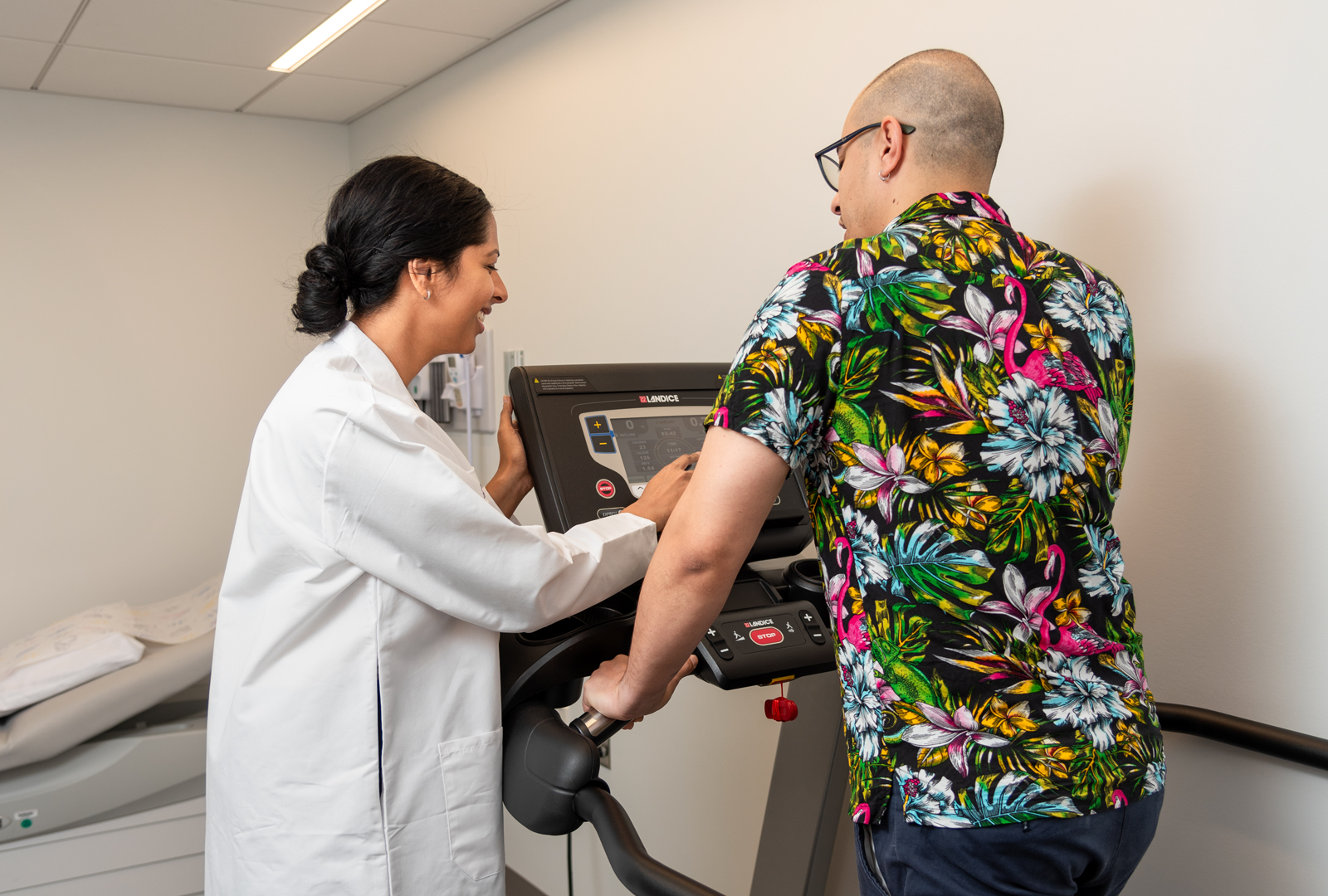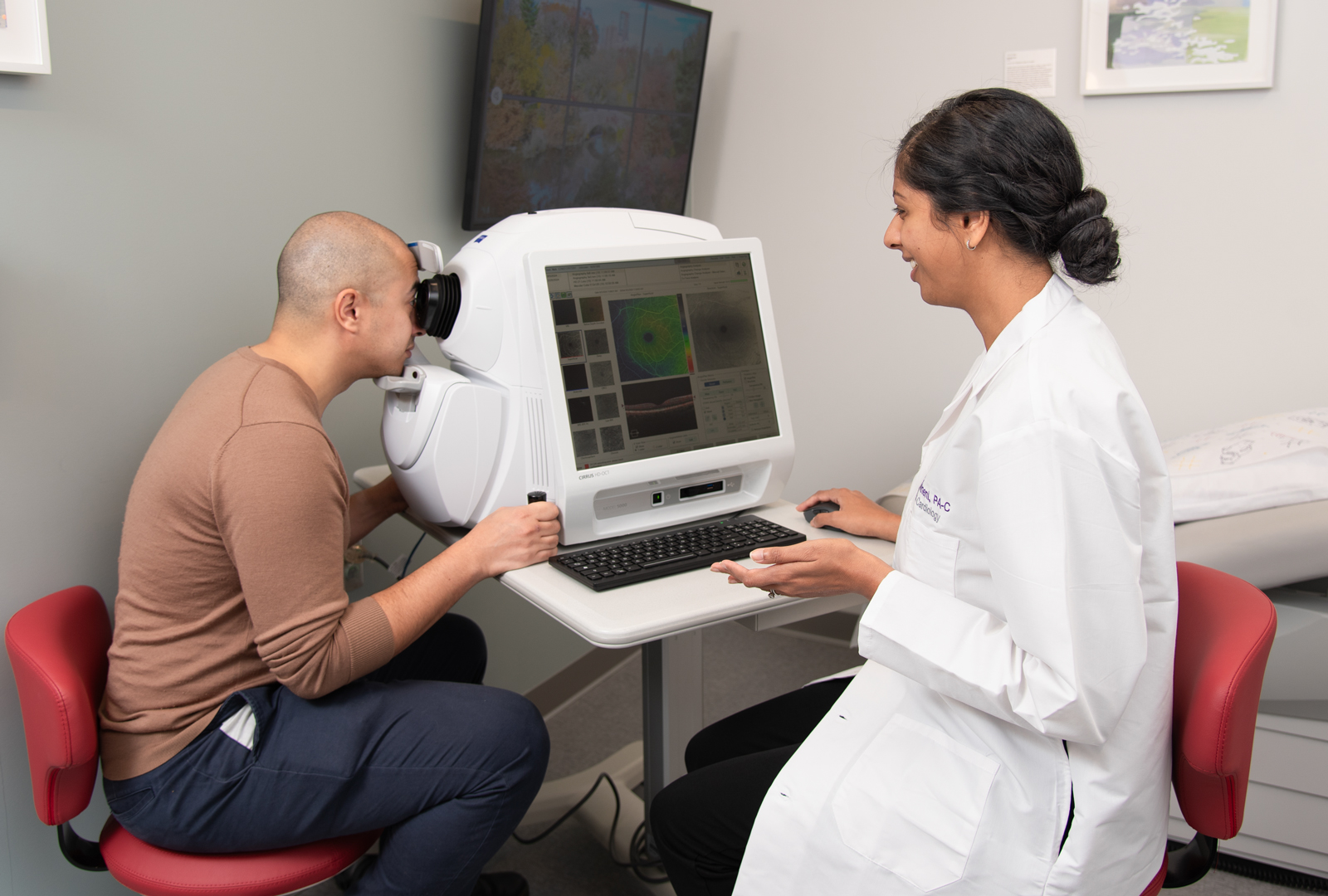Early Cardiovascular Disease Detection Program
Make an Appointment
To see one of our doctors, please obtain a referral from your NYU Langone physician then call 212-263-4300 to schedule.
Specialists at the Early Cardiovascular Disease Detection Program, a part of NYU Langone’s Center for the Prevention of Cardiovascular Disease, detect cardiovascular disease at its earliest stages.
This program is for people who have no perceptible signs or symptoms of cardiovascular disease, and for healthy-appearing individuals with a family history of cardiovascular disease.
During a visit to our offices and facilities, providers use advanced diagnostic tools to screen for early signs of abnormalities in the heart and vascular system—ranging from the tiniest blood vessels, known as capillaries, to the aorta, the largest vessel in the body. These abnormalities can be difficult to detect with standard screenings.

Our cardiologists review test results with you at a follow-up telemedicine appointment and may recommend that you see a preventive cardiologist, who can create a tailored intervention plan to help decrease your chances of developing cardiovascular disease.
An Advanced, Noninvasive Evaluation
Our patients complete the following noninvasive testing with a cardiology physician assistant:
- pulse wave velocity: measures how fast blood pressure waves—the rhythmic pulses created when your heart pumps—travel through the arteries; this test can help assess artery stiffness
- ankle brachial index: compares blood pressure in the ankle to blood pressure in the arm; it helps doctors check blood flow and detect signs of plaque buildup (atherosclerosis) in the legs
- coronary artery calcium scoring: a CT scan that checks for calcium buildup in the arteries supplying blood to the heart—the more calcium present, the higher the risk of atherosclerosis and heart disease
- retinal optical coherence tomography (OCT): a unique way to screen for early evidence of vascular disease within the eye
- carotid ultrasound: uses sound waves to create images of the carotid arteries in the neck; this test helps detect narrowing or blockages that could increase the risk of stroke and cardiovascular disease
Patients also complete blood work during a separate visit to a clinical laboratory. These two tests are included:
- high sensitivity troponin, which measures tiny amounts of troponin, a protein released when the heart muscle is under stress or has been damaged
- NT-proBNP, which measures the protein fragment N-terminal pro b-type natriuretic peptide, which is made by the heart when it is under stress; high levels can be a sign of heart failure or other heart conditions
Test results can help inform your care plan. Results also provide our cardiologists with data about early signs of cardiovascular disease, a growing field of research.

A Self-Pay Program
The Early Cardiovascular Disease Detection Program is a self-pay program with a single up-front fee of $3,000, collected at the beginning of your visit. This cost covers all advanced diagnostic testing and a follow-up consultation that provides personalized insights into your cardiovascular health. Please note that the program has no involvement with medical insurance.